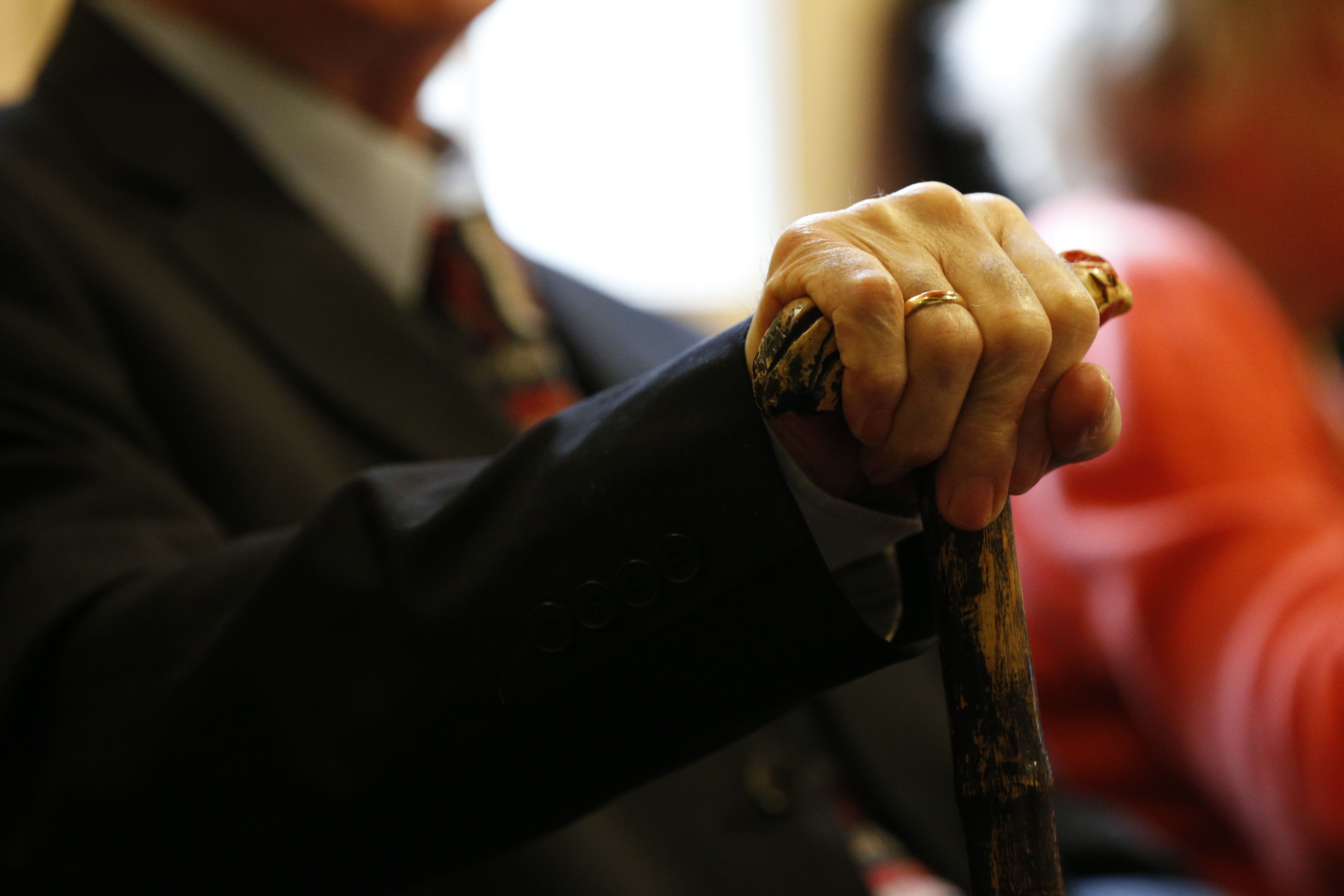Simple skin biopsy ‘could help diagnose Parkinson’s disease at earliest stages’
The test showed a 93% accuracy in detecting the biomarkers associated with the condition.

Your support helps us to tell the story
From reproductive rights to climate change to Big Tech, The Independent is on the ground when the story is developing. Whether it's investigating the financials of Elon Musk's pro-Trump PAC or producing our latest documentary, 'The A Word', which shines a light on the American women fighting for reproductive rights, we know how important it is to parse out the facts from the messaging.
At such a critical moment in US history, we need reporters on the ground. Your donation allows us to keep sending journalists to speak to both sides of the story.
The Independent is trusted by Americans across the entire political spectrum. And unlike many other quality news outlets, we choose not to lock Americans out of our reporting and analysis with paywalls. We believe quality journalism should be available to everyone, paid for by those who can afford it.
Your support makes all the difference.A simple and minimally invasive skin biopsy could help diagnose Parkinson’s disease and other progressive nervous system disorders at the earliest stages, scientists say.
The test looks for phosphorylated alpha-synuclein (P-SYN) – an abnormal protein associated with certain degenerative brain disorders.
Results showed 93% of those with Parkinson’s had a positive skin biopsy for P-SYN, when compared with controls.
The findings, published in the journal Jama, raise hopes of using biopsies for early diagnosis of Parkinson’s and speed-up drug development.
Currently, no definitive diagnostic test exists for Parkinson's leading to a high rate of misdiagnosis, particularly due to the overlap of symptoms with conditions such as dementia with Lewy bodies, multiple system atrophy, and pure autonomic failure
The test is also able to detect other disorders associated with abnormal alpha-synuclein protein, such as dementia with Lewy bodies – which has symptoms such as problems with mental abilities and slow movement; multiple system atrophy – a rare condition that causes gradual damage to nerve cells; and pure autonomic failure – a less common disorder with symptoms such as fainting and a drop in blood pressure upon standing.
Around 10 million people have Parkinson’s worldwide and 153,000 are thought to live with the condition in the UK.
It can be difficult to diagnose because there is currently no test and symptoms – such as tremors, mild memory and thinking problems and sleep issues – vary from person to person and can often be mistaken for other illnesses.
Previous research by the team has shown this technique is able to distinguish between Parkinson’s and multiple system atrophy, offering hope to manage the diseases “that appear clinically similar but have very different prognoses”.
To learn more, the researchers enrolled 428 people, aged between 40-99, with a clinical diagnosis of Parkinson’s, dementia with Lewy bodies, multiple system atrophy and pure autonomic failure.
Each person underwent three 3mm skin punch biopsies taken from the neck, the knee and the ankle.
Those with dementia with Lewy bodies and multiple system atrophy and pure autonomic failure tested 96% and 98% and 100% positive for the abnormal protein, the researchers said.
Senior author Roy Freeman, director of the Centre for Autonomic and Peripheral Nerve Disorders at Beth Israel Deaconess Medical Centre in the US and professor of neurology at Harvard Medical School, said the team were “thrilled with the accuracy of this diagnostic test”.
He added: “Parkinson’s disease and its subgroup of progressive neurodegenerative diseases show gradual progression, but alpha-synuclein is present in the skin even at the earliest stages.”
The team said further research is needed to validate the findings and characterise the “potential role of skin biopsy detection of P-SYN in clinical care”.
Commenting on the study, Dr Katherine Fletcher, research communications lead at Parkinson’s UK, said: “This study is one of many looking to find a simple way to accurately and more objectively identify and measure neurodegenerative conditions such as Parkinson’s.
“Currently, no definitive diagnostic test exists for Parkinson’s leading to a high rate of misdiagnosis, particularly due to the overlap of symptoms with conditions such as dementia with Lewy bodies, multiple system atrophy, and pure autonomic failure.
“This method of taking small samples of skin to be tested looks promising and patient friendly and the test is being explored for Parkinson’s and other related conditions.
“However, the test still needs refining to further understand its accuracy and sensitivity to detect the different conditions and at what stage.
“Research into these types of tests is hugely important not only to improve diagnosis but to help accelerate the search for new and better treatments to transform the lives of those living with Parkinson’s.”